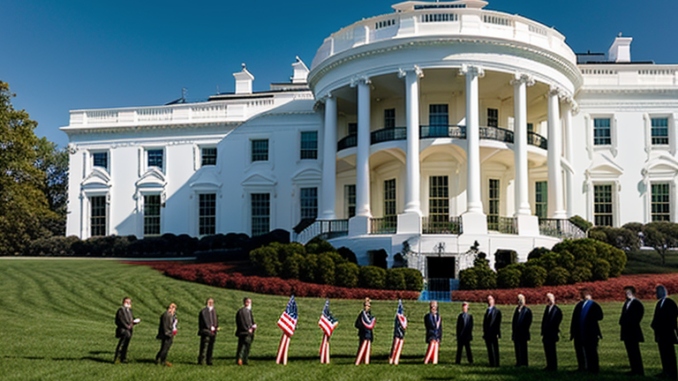
In the ever-changing world of cryptocurrency, a conflict is unfolding between political leaders and industry giants regarding the future of innovation and the role of stablecoins in the global financial system. With the upcoming 2024 US presidential race, the crypto voting block has become an influential force that politicians cannot ignore.
At the center of this clash is Brian Armstrong, the CEO of Coinbase, who has become a prominent figure in the crypto community. Armstrong strongly advocates for the adoption and advancement of decentralized cryptocurrencies, believing that stablecoins like Tether and USD Coin are key to transforming the financial system.
According to Armstrong, stablecoins contribute to global economic efficiency by providing a secure and stable medium of exchange. He emphasizes the need for politicians to embrace and understand the growing adoption of cryptocurrencies among voters, as more Americans now consider a candidate’s stance on crypto when making their voting decisions.
Armstrong predicts that the 2024 US election will be a defining moment, where candidates will be held accountable for their positions on crypto. He asserts that the influential crypto voting block will closely scrutinize politicians’ views on crypto, potentially reshaping the political landscape.
However, not all politicians share Armstrong’s enthusiasm for cryptocurrency. Chris Larsen, co-founder of Ripple, has criticized US President Joe Biden for his stance on crypto, arguing that it hampers the nation’s progress in innovation. Larsen believes that Biden’s failure to fully understand the extent of crypto’s influence is detrimental to the country’s ability to remain at the forefront of technological advancements.
Interestingly, Armstrong’s and Larsen’s perspectives are not isolated. A recent survey found that 67% of Americans believe that the financial system needs a significant update, reflecting a growing sentiment that traditional financial institutions are struggling to keep up with the times.
As the battle for crypto intensifies, politicians who support cryptocurrency see it as an opportunity to challenge Biden’s policies and promote their vision for a decentralized future. They recognize the power of the crypto voting block and aim to use it to shape policy decisions that align with the needs and aspirations of the crypto community.
Armstrong also emphasizes the importance of allowing crypto technology to thrive for America to maintain its leadership as a technology hub. He believes that embracing decentralized cryptocurrencies like Bitcoin and platforms like Ethereum, along with stablecoins, will drive innovation and keep the country competitive.
Furthermore, Armstrong’s advocacy for stablecoins comes from his belief that they are the most crucial technology for updating the financial system. By providing a reliable and efficient means of exchange, stablecoins address the volatility concerns associated with traditional cryptocurrencies, making them more accessible to businesses and individuals.
In Armstrong’s vision of the future, stablecoins and other advancements will contribute to the decentralized nature of the crypto ecosystem. This aligns with the broader goal of creating a financial system that is not dependent on centralized authorities, ensuring transparency, security, and economic efficiency for all participants.
As the 2024 US presidential race approaches, it is clear that the crypto voting block will play a pivotal role in shaping candidates’ positions on crypto. Politicians can no longer underestimate the influence and power of this growing community. The battle for crypto will continue to evolve, with industry leaders like Brian Armstrong leading the fight for innovation and decentralized technology.
In a world where economic growth is driven by innovation and technology, the clash between political leaders and industry giants over the future of cryptocurrency is inevitable. As the 2024 US presidential race heats up, the power of the crypto voting block is set to be unleashed, shaping the political landscape and determining the path of the nation’s progress in innovation. The battle lines have been drawn, and the outcome will have significant consequences for the future of cryptocurrency and its role in the global financial system.

Be the first to comment